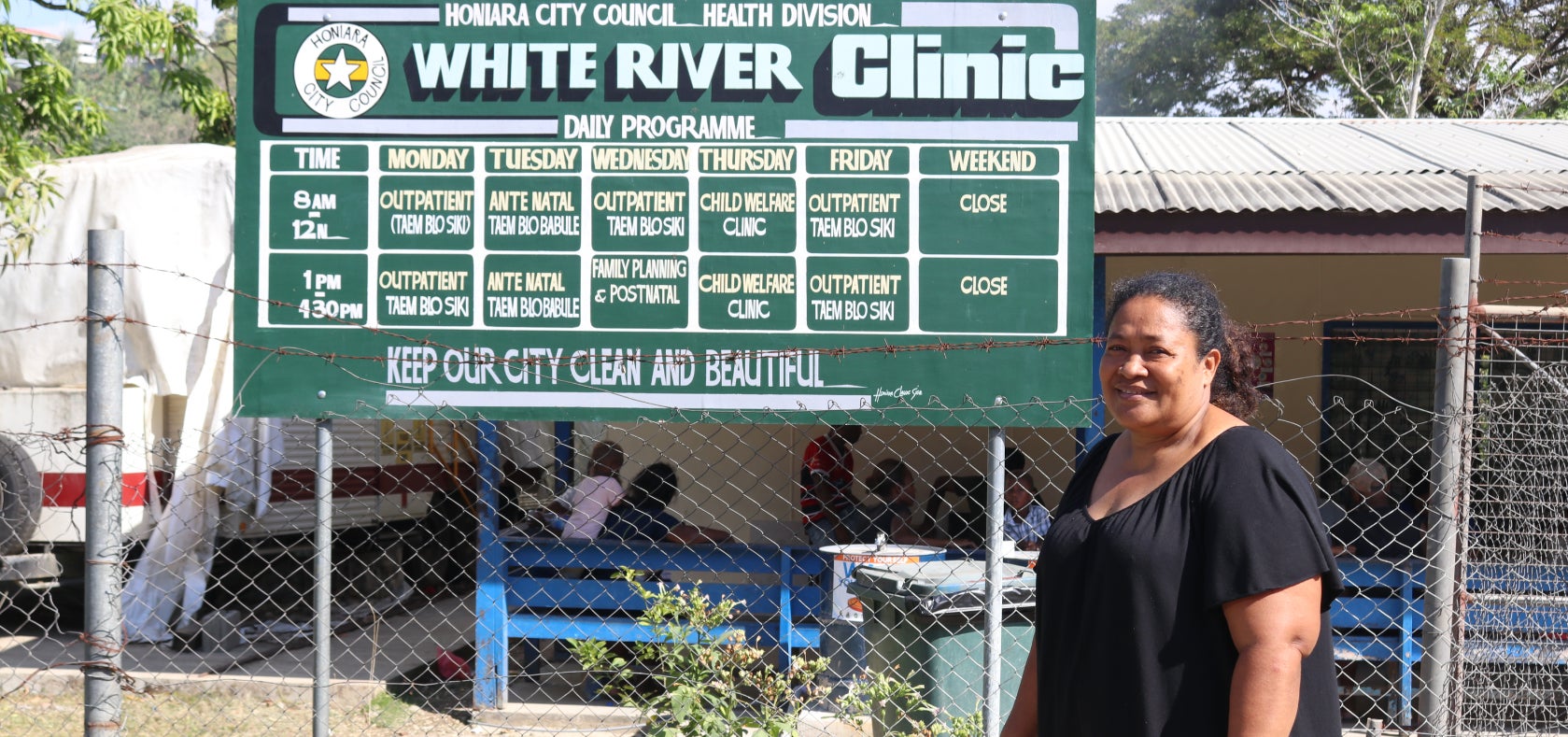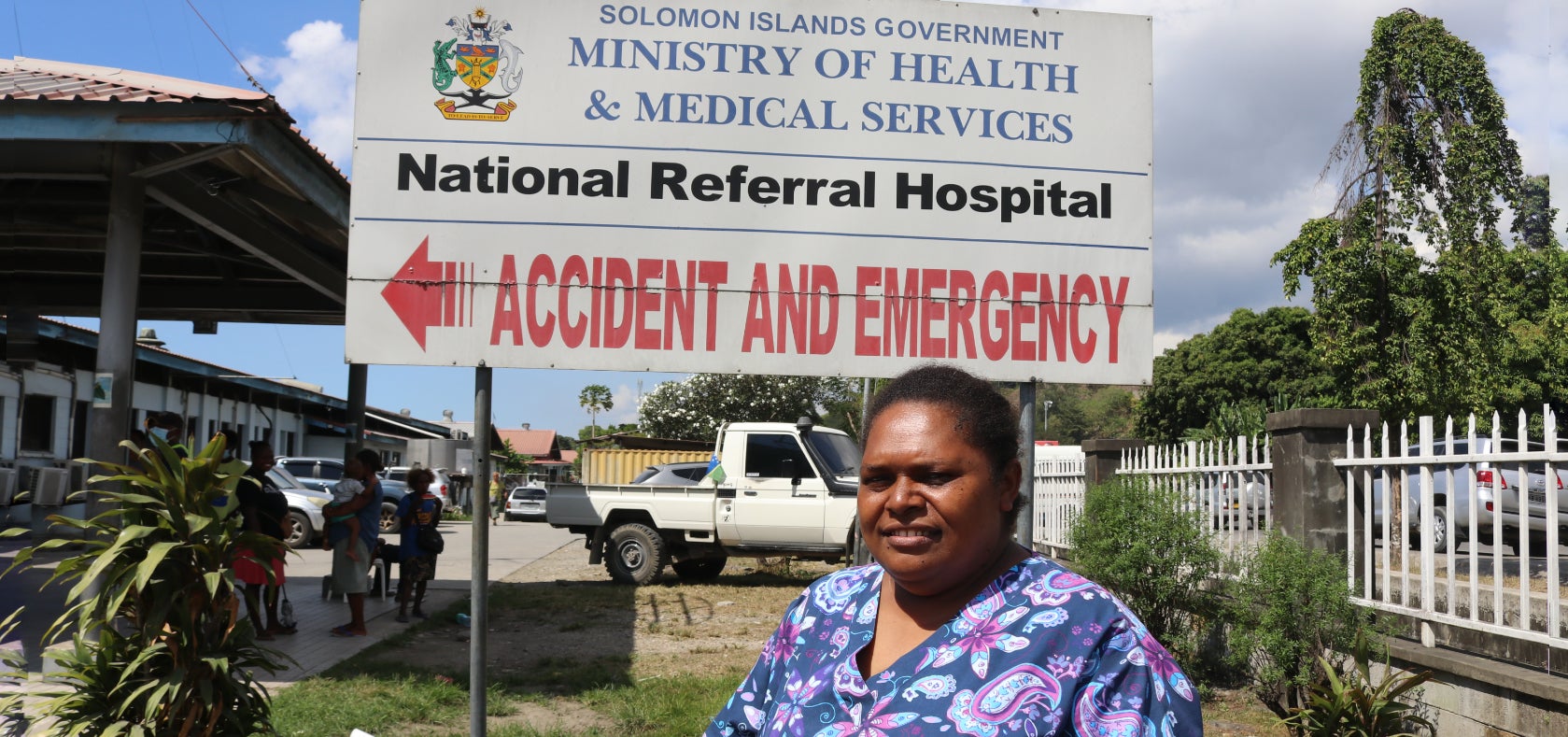Shifting the paradigm: Health professionals making a difference for survivors of violence in Solomon Islands
Date:

Esther Nevenga, a nurse, carries the memory of a young patient that forever changed her perspective. Accompanied by her mother, a 12-year-old girl walked into the clinic where Nevenga worked. She had been raped by someone she knew. A doctor examined her and provided a medical report. Despite the girl’s courage in taking the matter to court, the judges ruled there wasn’t enough evidence to consider it rape.
“When I read the medical report, it simply stated, ‘hymen freshly broken’. That’s all. My blood pressure skyrocketed, and I nearly collapsed. I couldn’t believe the doctor had overlooked the gravity of the situation. It was incredibly unfair,” Nevenga recalls.
Collecting sufficient evidence to convict perpetrators is one of the most challenging aspects of prosecuting sexual and gender-based violence (GBV) crimes. Additionally, many survivors choose not to disclose their experiences, fearing stigma and retraumatisation from service providers.
In Solomon Islands, where 2 in 3 women and girls have experienced physical or sexual violence, the Ministry of Health and Medical Services (MHMS) is taking crucial steps to strengthen the capacity of health professionals to detect, examine and document cases of sexual and GBV. This initiative aims to support survivors throughout the process, ensuring they receive the necessary care and assistance.
The transformative power of quality health response
To streamline frontline services and support for survivors, the Government of Solomon Islands developed the SAFENET Guidebook in 2017. Aligned with the UN’s Essential Services Package, this guidebook provides Standard Operating Procedures for the health sector. It clarifies the critical roles of healthcare providers in detecting, examining, documenting, and referring cases of sexual and GBV, emphasising safety, confidentiality, informed consent, and non-discrimination. The medical report template includes screening questions, incident details, history of violence, and the treatment provided, which can serve as evidence in court.
In 2019, the MHMS, with the support of UNFPA, further developed a Standard Operating Procedure on Clinical Management of Rape to address the alarming prevalence of rape and sexual assaults against women and children.
Nashly Votozo, national GBV programme officer at MHMS, plays a vital role in training nurses across the country on how to respond to sexual and GBV. “While all healthcare providers know how to treat patients, the approach is quite different when it comes to gender-based violence. You need techniques to identify gender-based violence from other cases, build trust with survivors to disclose, interpret their body language, conduct medical examination and write accurate reports. It has to be ethical and survivor-centred”, explains Vazoto.
Elizabeth Sanau, a nurse at the Emergency Department of the National Referral Hospital praises the survivor-centered approach and coordination among SAFENET service providers. “In the past, husbands would come and threaten female patients at the hospital. For safety and privacy, we now take survivors in our ‘quiet room’ for private counseling. We also have more cases referred by the police. Once the treatment is complete, we call the police to accompany the survivors to keep them safe from perpetrators”, shares Sanau.

Between 2019 and 2021, the number of gender-based violence cases received by SAFENET’s health providers tripled. Votozo explains, “When there are more trained healthcare providers, there is a higher reporting of violence because women are more likely to seek services when they know quality services are available.”.
From healthcare to justice
The bitter memory of the child rape case motivated Esther Nevenga to become a dedicated advocate for survivors as a healthcare provider. She now leads the GBV response at the White River Clinic in Honiara, one of the SAFENET service providers.
“The first thing I ask my patients is whether they feel safe and if the perpetrator is aware of their whereabouts. I then explain the range of support services we can provide and other services we can connect them with. My priority is to ensure that they receive all the care and support they deserve”, explains Nevenga.
She recently dealt with a case of a 16-year-old girl who was raped by an acquaintance. Initially seeking emergency contraception at the clinic, the girl was referred to Nevenga.
“During the consultation in a private room, she disclosed that she was raped. I did the examination. And when I do examination, I go into details. I write down everything I’ve seen from outside and inside. Later, I represented her in court, standing as a health professional who had conducted the examination. With the medical evidence provided, the perpetrator was sentenced to seven years behind bars”, exclaims Nevenga. Over the past few years, her medical expertise, and the evidence she provides have been instrumental in successfully prosecuting several perpetrators of sexual and gender-based violence.
“My hope is for every woman and girl in Solomon Islands to live in a safe environment, where they can move freely and express themselves without fear. We must build a community that is friendly and supportive, so we can ensure a future free from gender-based violence,” shares Nevenga.
UN Women is a longstanding partner of the Government of Solomon Islands. SAFENET, led by the Ministry of Women, Youth, Children and Family Affairs and supported by key multisectoral partners, receives significant backing from UN Women through the Pacific Partnership to End Violence Against Women and Girls. This programme is primarily funded by the Government of Australia, the European Union, and is jointly coordinated by UN Women and the Pacific Community (SPC), in collaboration with the Pacific Islands Forum (PIF). Now in its second phase (2023-2027), the Pacific Partnership builds on the success of the first phase (2018-2023), advancing innovative initiatives and partnerships to promote gender equality and end violence against women and girls across the region.